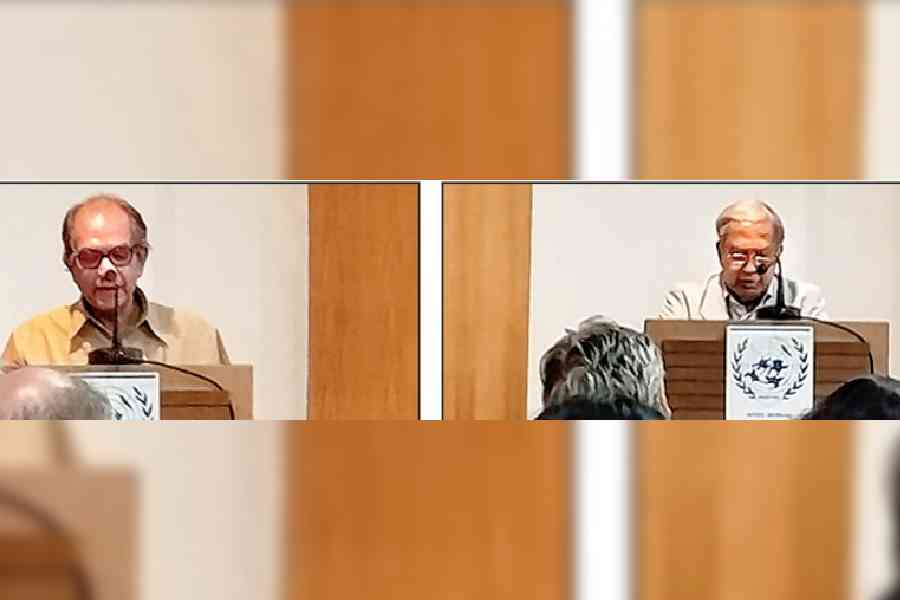At a time the spectre of war looms on the subcontinent, an “institute of peace studies” was unveiled in Calcutta.
The Tagore Institute of Peace Studies (TIPS) is an initiative of the West Bengal Federation of United Nations Associations. It is affiliated to the Indian Federation of United Nations Associations, one of the over 100 such national associations in the world.
They function under the aegis of the World Federation of United Nations Associations, headquartered at the UN office in New York. The federation is devoted to promoting the aims and objectives of the UN as mentioned in its charter.
“TIPS, a think tank, will be the first of its kind in our state to be engaged in peace and conflict studies so relevant in present times. For now, it will conduct certificate and diploma courses in the virtual mode,” said a spokesperson.
The launch event at the ICCR on Thursday evening saw a host of speakers, including Krishnan Srinivasan, former Indian foreign secretary; Suranjan Das, former vice-chancellor of Jadavpur University; and Major General (retd) Arun Roye.
“By interpreting perspectives from many disciplines, peace studies today seeks to provide a holistic understanding by combining insights from economics, sociology and environmental science. We at the Tagore Institute propose to develop teaching-learning processes in this holistic sense. Tagore, in whose name this institute has been named, was the greatest votary of world humanism,” said Das, now the vice-chancellor of Adamas University.
Srinivasan talked of another Indian who championed peace.
“India’s unique contribution to conflict resolution and the search for reconciliation were shown in the incomparable person of Mahatma Gandhi,” Srinivasan said.
“In Gandhi, we were privileged to have a one-man truth and reconciliation commission; a case where one individual’s aura was sufficient to bring a healing touch to even the most fraught and difficult and violent situations. Gandhi believed in the principle of no victor and no vanquished. This, surely, has to be the foundation of every successful mediation for peace and conflict resolution.”
Major General (retd)Roye said conflicts and disputes were “part of the human condition” since times immemorial.
Alluding to the non-stop jingoism in the TV channels in the wake of renewed hostilities between India and Pakistan, said “war means noise”.
“There is no absolute victory in war,” he said.
Sitaram Sharma, founder-president of the institute and chairman of the West Bengal Federation of United Nations Associations, said the UN had failed in maintaining world peace.
“The world is at the crossroads. According to the Global Peace Index, as many as 92 countries are now involved in border conflicts. Last year, 1,62,000 lost their lives in conflicts. That explains the need for peace studies,” Sharma told Metro.











